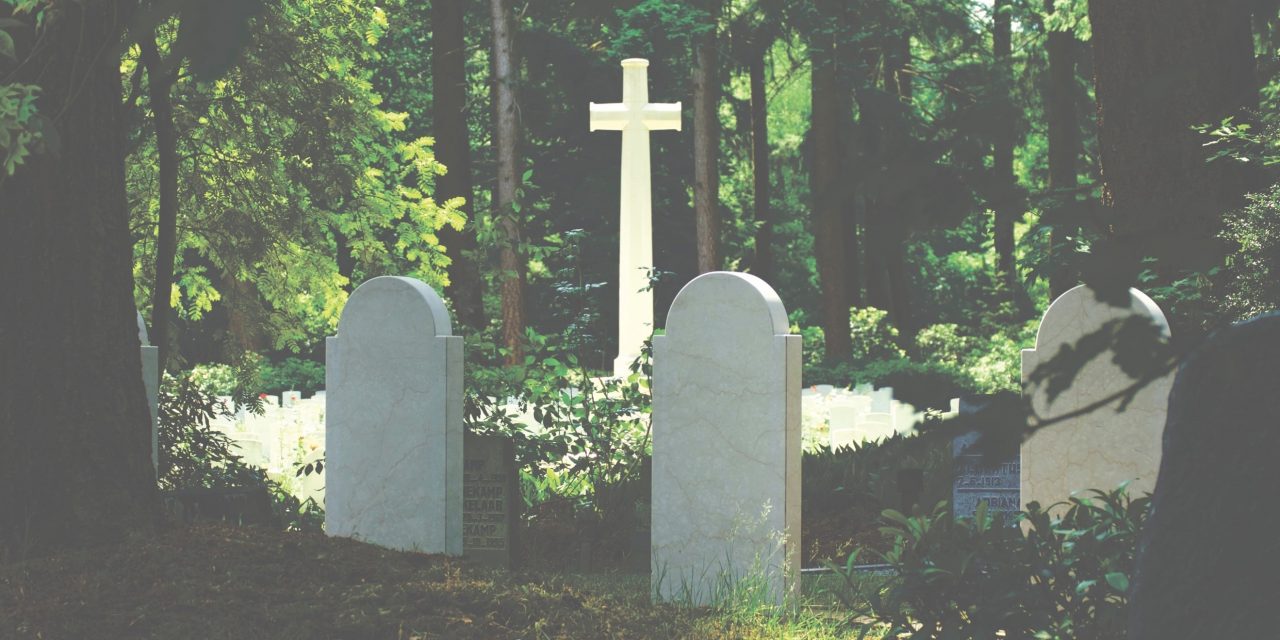The death of someone close to you can be a traumatic and emotional time. Here is some advice on what to do when someone close to you passes.
Losing a loved one can be a very traumatic and emotional time, and many may feel lost. Everyone is affected by death in different ways, and when someone close to you passes away, you may not know what to do next. In this confusing time, it’s important to know everything that follows after someone dies. Whether you’re reading this out of curiosity or because it is relevant to you, everyone should be prepared for what to do when a loved one dies.
We’ve asked S. Stibbards & Sons, expert funeral directors in Benfleet and Essex, about the necessary steps to take after someone has passed away. In this post, you’ll find out everything you need to know about what to do when someone dies.
- Medical Certificate
Whilst it may be the last thing on your mind, once someone has died you’ll need a medical certificate. This is signed off by a doctor, with a confirmed time and date of death. For those loved ones that have passed in the hospital, you’ll have a medical certificate provided by the acting physician. However, some may have died at home. In this case, you’ll need to ring the GP of the deceased, and have them confirm the death. Medical death certificates can only be certified by a doctor. Unless there is a coroner’s inquest, you should receive a medical certificate fairly soon after the death. (almost immediately). There are no fees or charges for a medical certificate of death.
- Registering the Death
After receiving the medical certificate, you are required to register the death within 5 days. You’ll need to contact the relevant place in order to register the death. You must register the death of the deceased in the country they live in. For England and Wales, this is the Register Office. In Scotland, it will be the Registrar of Births, Deaths and Marriages. Finally, in Northern Ireland, the place to contact will be the District Registration Office.
The only costs surrounding registering a death is when you require a death certificate. This is £8 in Northern Ireland and £4 in England and Wales. If you need multiple copies, you should buy them together at this stage, as it is sometimes easier. Multiple copies may be needed so you can deal with different organisations (who require the death certificate) at the same time. Otherwise, you’ll need to wait for your single copy to be returned. It makes the process a lot quicker and easier.
There is some information you need to provide to registration offices when someone has died. This includes:
- Full name of the deceased
- Their date and Place of birth
- The deceased’s address
- As well as their occupation
- The name, date of birth and address of their marital partner/civil partner (surviving or late).
- Their birth certificate
- Their marriage/civil partnership certificate (if applicable)
- Their national insurance number
- Passport and driving license
- Proof of address (utility bill, bank statement etc.)
- Their NHS medical card
- As well as proof of your own identity
Once you have registered the death, you can now look to planning the funeral.

- Funeral Planning
Contacting a funeral director to plan the funeral comes next, and this is the time where you (with their assistance) organise the service of the deceased. Whilst many choose to use a funeral director, some choose to plan it themselves. However, this can be a lot for those already grieving. A funeral director can assist you with guidance, support and advice, as well as planning the ideal service for your loved one. They’ll gather as much information from you and other sources in order to create the right service for your loved one. After the service is completed and a few weeks have passed, there are some final people you must notify.
- Notifying after the Funeral
There are a few organisations and parties you must contact regarding the death of the individual.
- Property
If your loved one was living in rented accommodation, you must contact the landlord and inform them of their death. Living in owned housing means that any payments will be transferred over to your name, which includes bills and other payments. You’ll need to contact mortgage providers, utility providers, housing associations and employers to notify them of the death.
- Government
You need to contact each relevant section of government to notify them of the deceased: including passport office, HMRC, department of work and pensions, the DVLA, the council and public sector.
- Insurers and Creditors
Finally, you need to contact insurance companies and banks – whoever owed the deceased money, in order for the funds to be released. However, if the deceased had any debts, these will need to be settled (again, this is dependent on if they had a will – finances are usually settled with assets from the will).
Finally, you will need to return both the driving license and passport of the deceased.
Whilst it is a difficult time, all of the listed above should be completed as soon as possible after the funeral service is completed. It can be a long process, so it is best to make sure that you start moving things along, as soon as possible after the funeral service.
- Overcoming Challenges in the Production of THC Seltzers - 10th May 2024
- The changes in dental marketing - 12th October 2022
- Online aligners or surgery based ones? - 12th October 2022








